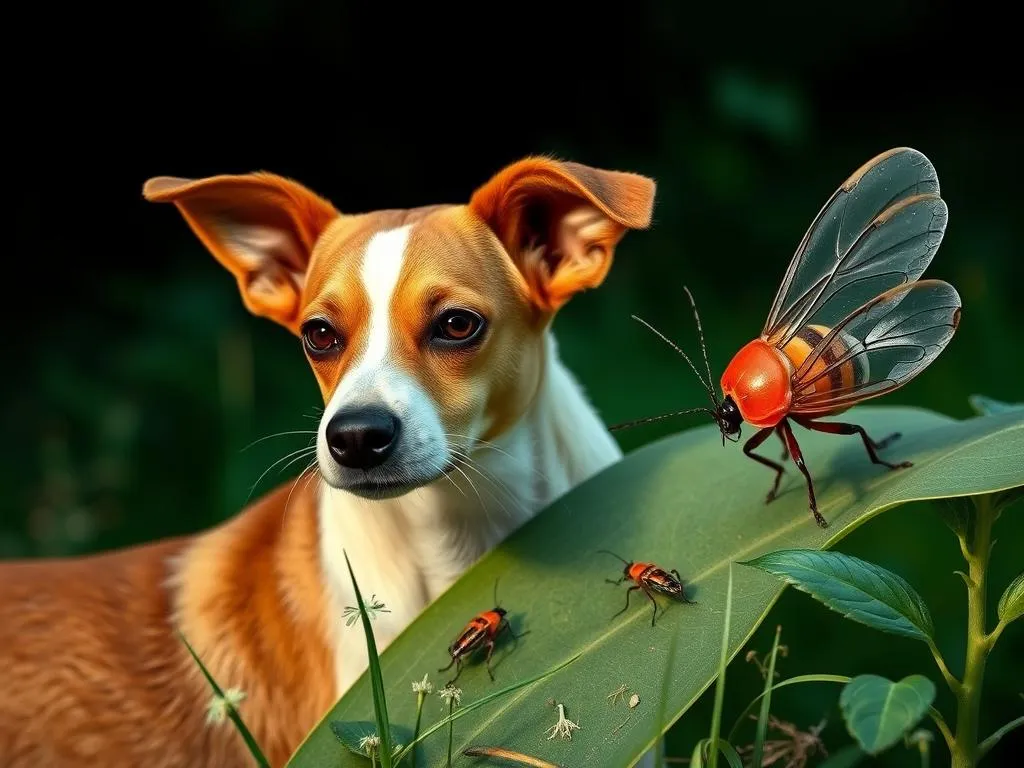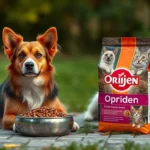
Introduction
As pet owners become more conscious of their furry friends’ dietary needs, a compelling question arises: can dogs eat bugs? This article delves into dog nutrition, exploring alternative protein sources and the growing interest in insects as a food option. Understanding dog diet is crucial for maintaining their health, energy levels, and overall well-being. Insects, often overlooked, present a sustainable and nutritious alternative to traditional protein sources.
Understanding Dog Nutrition
Nutritional Needs of Dogs
Dogs require a balanced diet rich in essential nutrients, including:
- Proteins: Vital for growth, repair, and maintenance of body tissues.
- Fats: Provide energy and support cell structure and hormone production.
- Carbohydrates: Offer energy and aid in digestion.
- Vitamins: Essential for various bodily functions, including immune response and skin health.
- Minerals: Important for bone health, nerve function, and muscle contraction.
Each nutrient plays a significant role in a dog’s overall health, ensuring they lead a happy and active life.
Common Dietary Sources
Traditionally, dog food has been composed of ingredients like meat, grains, and vegetables. However, there has been a notable rise in alternative diets, such as grain-free and raw feeding, as pet owners seek to provide the best nutrition possible. As awareness of the nutritional benefits of various food sources grows, the idea of incorporating bugs into dog diets becomes increasingly appealing.
Insects as a Protein Source
Nutritional Benefits of Bugs
Insects offer a rich source of protein, often containing up to 70% protein by dry weight. Not only do they provide essential amino acids, but they also come packed with healthy fats, vitamins, and minerals. For example:
- Crickets: High in protein and contain omega-3 and omega-6 fatty acids.
- Mealworms: Rich in protein, fiber, and essential vitamins like B12.
- Grasshoppers: Provide a good balance of protein, fat, and essential minerals.
When compared to traditional protein sources like beef, chicken, or fish, bugs can be a more sustainable and equally nutritious option.
Sustainability of Insect Farming
The environmental impact of traditional livestock farming is significant, contributing to deforestation, greenhouse gas emissions, and excessive water usage. In contrast, insect farming requires far less land and water, making it a more sustainable practice. Bugs have a lower carbon footprint and can be raised on organic waste, further reducing their environmental impact. As the demand for sustainable pet food grows, incorporating bugs into dog food production could be a game-changer.
Can Dogs Eat Bugs?
Types of Bugs Safe for Dogs
Many insects are safe for dogs to consume. Common options include:
- Crickets: Often used in dog treats and food.
- Mealworms: Nutrient-dense and palatable for dogs.
- Grasshoppers: Another excellent source of protein.
When introducing bugs into your dog’s diet, preparation is essential. Bugs can be served cooked, dried, or ground, making them easy to incorporate into meals or treats.
Potential Risks and Considerations
While bugs can be a healthy addition to your dog’s diet, there are potential risks to consider:
- Allergies: Just like humans, dogs can have allergies or sensitivities to certain foods, including insects. Monitor your dog for any signs of an allergic reaction, such as itching, digestive upset, or lethargy.
- Wild-Caught Insects: If you’re considering foraging for insects, be cautious. Wild-caught bugs may carry pesticides, toxins, or parasites that could harm your dog. Always choose commercially sourced bugs that are specially raised for animal consumption.
How to Introduce Bugs into Your Dog’s Diet
Transitioning to Bug-Based Foods
Introducing bugs into your dog’s diet should be done gradually. Here’s a step-by-step guide:
- Start Small: Begin with a small amount of bug-based food or treats to gauge your dog’s acceptance.
- Mix with Regular Food: Combine the bugs with your dog’s regular food to help them adjust to the new flavor and texture.
- Monitor Reactions: Keep an eye on your dog’s behavior and health over the next few days. Look for any signs of digestive upset or allergies.
- Increase Gradually: If your dog responds well, gradually increase the amount of bugs over a week or two.
Recommended Products Containing Bugs
Several commercially available dog foods and treats include bugs as ingredients. Some popular brands that feature insect protein are:
- The Honest Kitchen: Offers dog food made with dehydrated insects, providing a complete and balanced diet.
- Pet Plate: Features meals that incorporate crickets as a sustainable protein source.
- Bugsy’s Kitchen: Specializes in treats and chews made from mealworms and crickets.
These products not only provide nutritional benefits but also introduce variety into your dog’s diet.
Frequently Asked Questions (FAQs)
Can All Dogs Eat Bugs?
While many dogs can safely consume bugs, it’s essential to consider individual factors such as breed, size, and health conditions. Dogs with specific allergies or intolerances may not be able to handle insect protein. Always consult your veterinarian before making significant dietary changes.
How Often Can I Feed My Dog Bugs?
Bugs can be a regular part of your dog’s diet, but moderation is key. Aim to incorporate bugs into their meals a few times a week, adjusting portion sizes based on your dog’s size, activity level, and overall diet. A balanced approach ensures your dog receives a variety of nutrients from different sources.
What to Do If My Dog Has a Negative Reaction?
If your dog exhibits any adverse reactions after consuming bugs, such as vomiting, diarrhea, or signs of an allergic reaction, discontinue feeding them bugs immediately. Consult your veterinarian for guidance on managing food allergies and determining safe dietary options.
Conclusion
Incorporating bugs into your dog’s diet presents a unique opportunity for pet owners to explore sustainable and nutritious protein sources. The nutritional benefits of bugs, combined with their environmental advantages, make them an exciting addition to dog food. As responsible pet owners, we should consider diverse protein sources to enhance our dogs’ diets and well-being. Consulting with a veterinarian is always recommended to tailor dietary choices to your dog’s specific needs.
By understanding the potential of insects as a food source, we can make informed decisions that benefit our furry friends and the planet. As the pet food industry evolves, embracing innovative and sustainable solutions like bugs can pave the way for healthier and more environmentally friendly pet nutrition.









